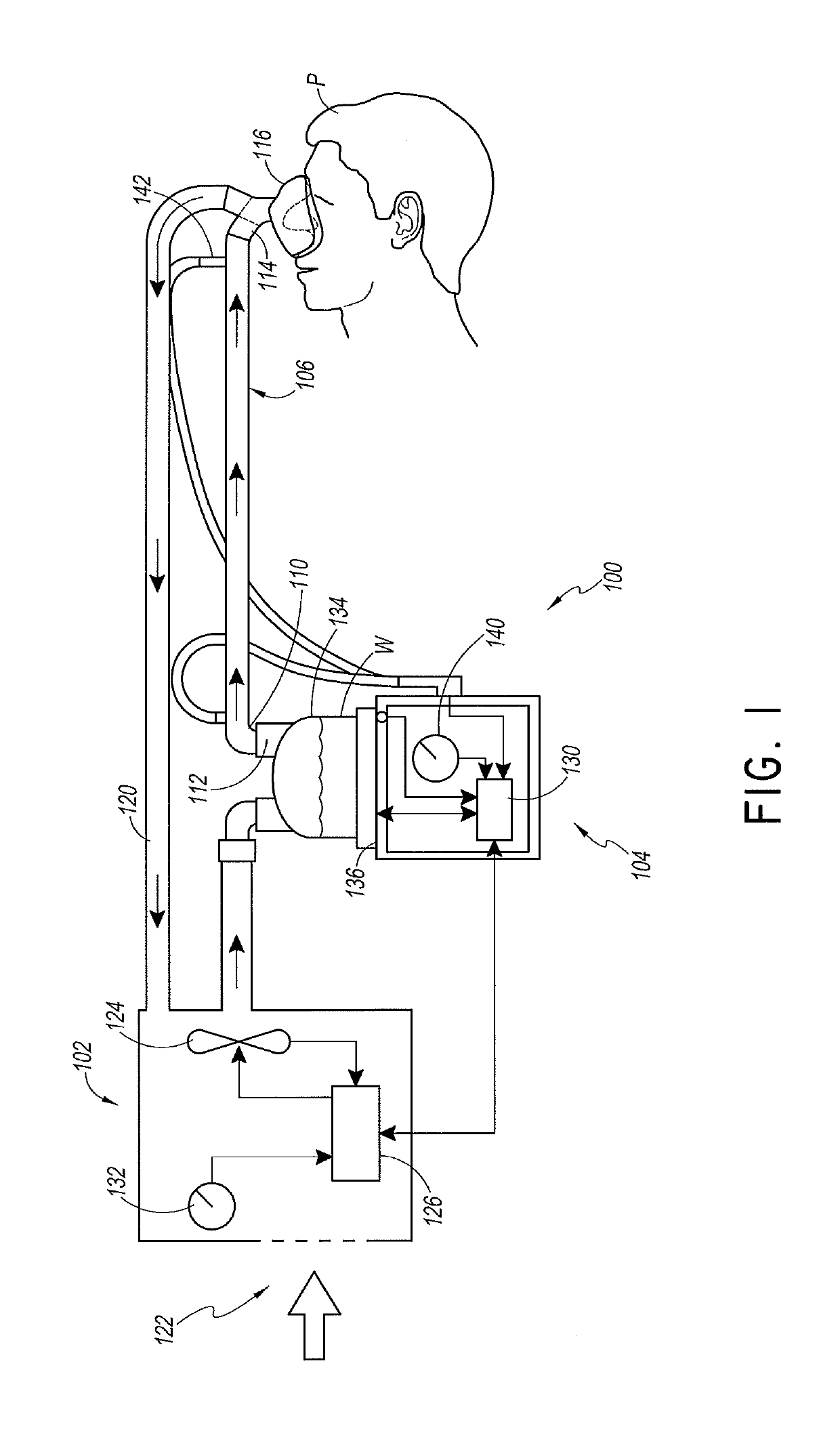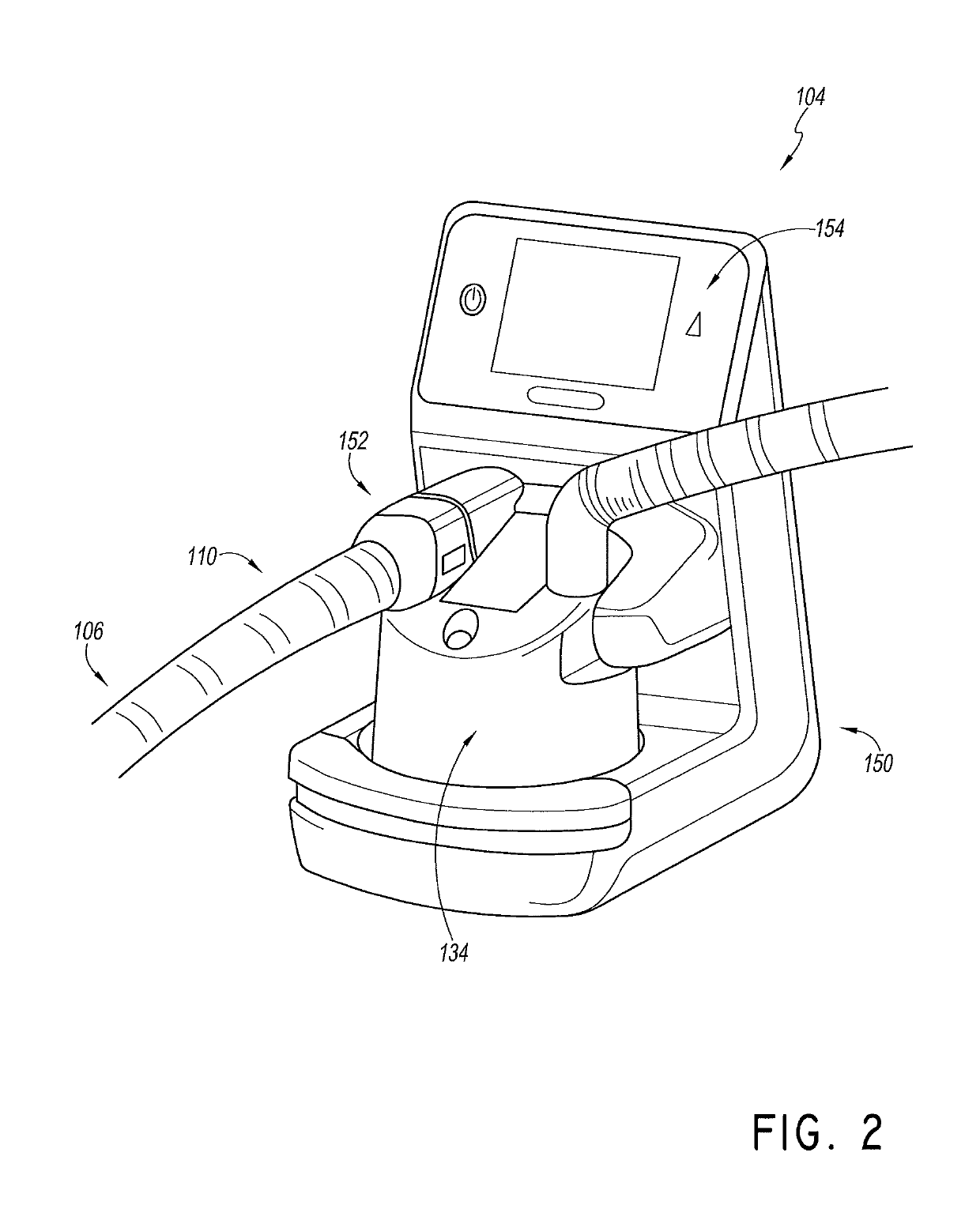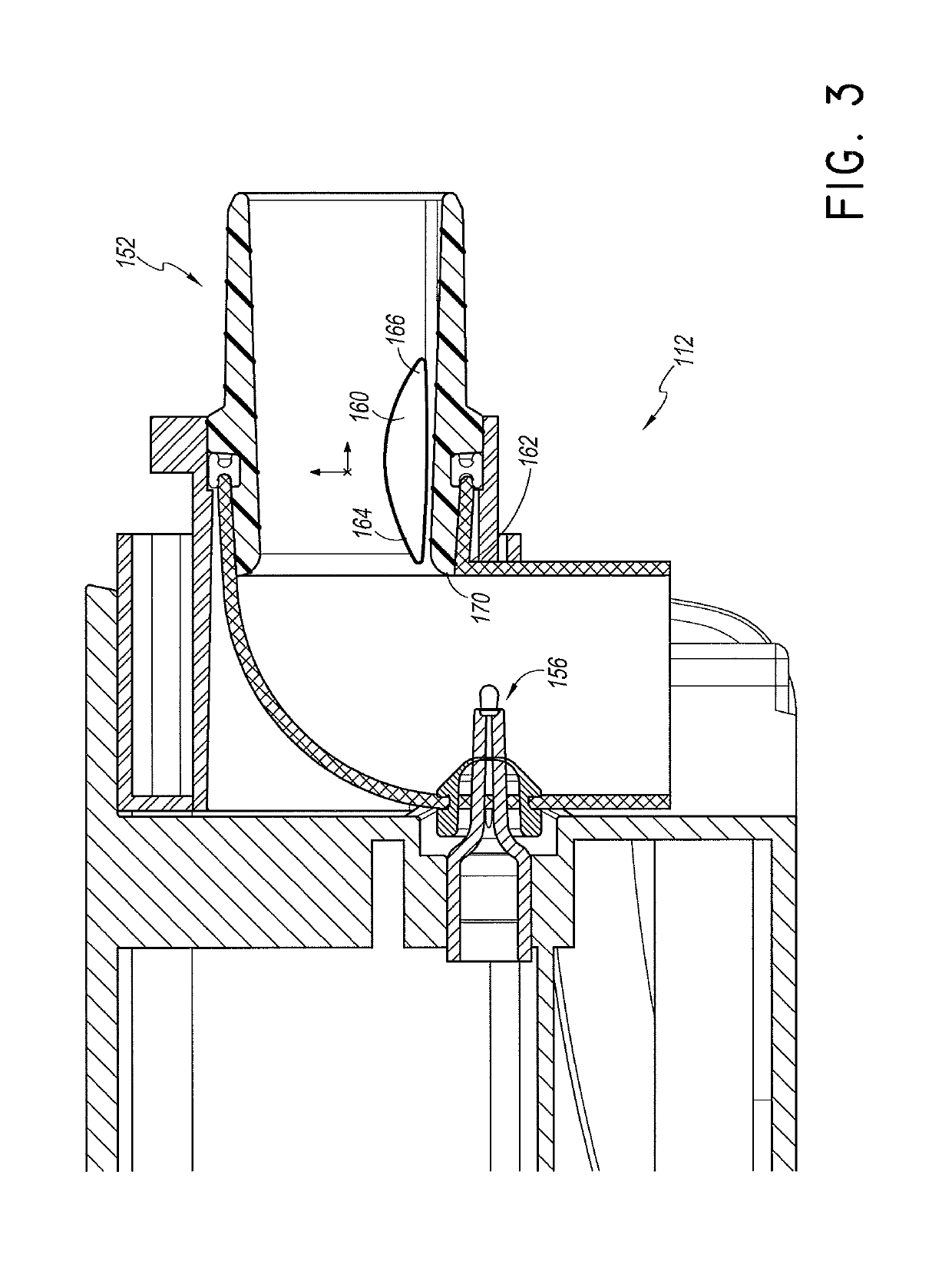Respiratory humidification system
a technology of respiratory gas and humidification system, which is applied in the direction of respirators, lighting and heating apparatus, heating types, etc., can solve the problems of greater heat loss in these regions and low temperatures, and achieve the effects of reducing the amount of condensate, improving the fluid characteristics of respiratory gas, and reducing recirculation
- Summary
- Abstract
- Description
- Claims
- Application Information
AI Technical Summary
Benefits of technology
Problems solved by technology
Method used
Image
Examples
Embodiment Construction
[0051]With reference to FIG. 1, a system 100 is illustrated that can be used to supply heated and / or humidified gases flow to a patient or other user. The system 100 can be configured to be a continuous, variable, or bi-level positive airway pressure (PAP) system, invasive or non-invasive respiratory assistance system, high flow respiratory therapy system, a surgical insufflation system, or a system providing other forms of medical gases. The system 100 may be readily adapted for other applications involving the supply of a heated and / or humidified gas flow to a user or patient, including but not limited to laparoscopy, ventilation support, and the like. Such applications may use alternative gases, operating parameters (e.g., flow, pressure, temperature, or humidity) and patient interfaces.
[0052]In the system 100, dry or relatively dry gases pass from a gases source 102 to a humidifier 104. The gases source 102 may be, for example, a ventilator or a blower.
[0053]The humidifier 104 c...
PUM
 Login to View More
Login to View More Abstract
Description
Claims
Application Information
 Login to View More
Login to View More - R&D
- Intellectual Property
- Life Sciences
- Materials
- Tech Scout
- Unparalleled Data Quality
- Higher Quality Content
- 60% Fewer Hallucinations
Browse by: Latest US Patents, China's latest patents, Technical Efficacy Thesaurus, Application Domain, Technology Topic, Popular Technical Reports.
© 2025 PatSnap. All rights reserved.Legal|Privacy policy|Modern Slavery Act Transparency Statement|Sitemap|About US| Contact US: help@patsnap.com



